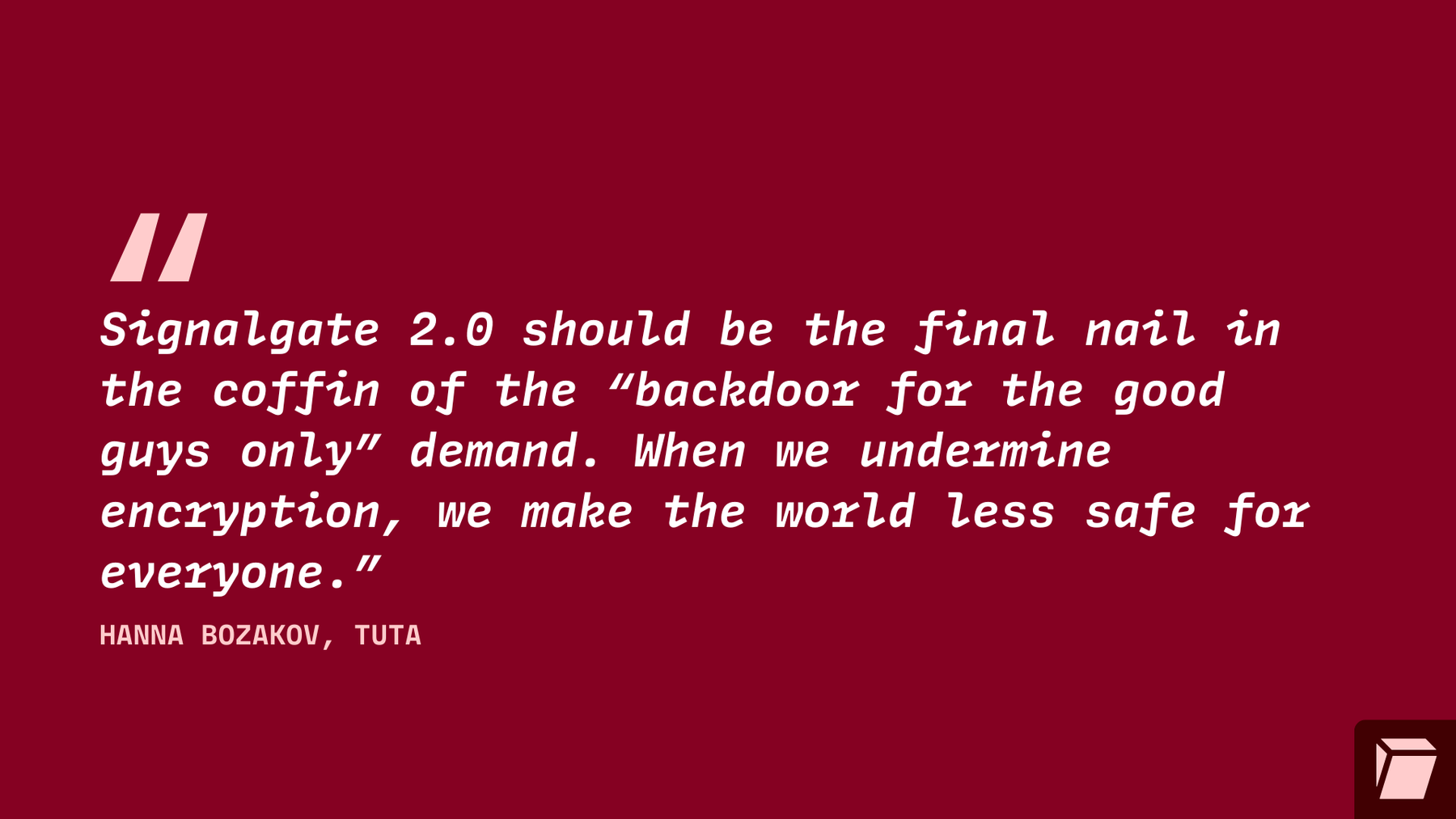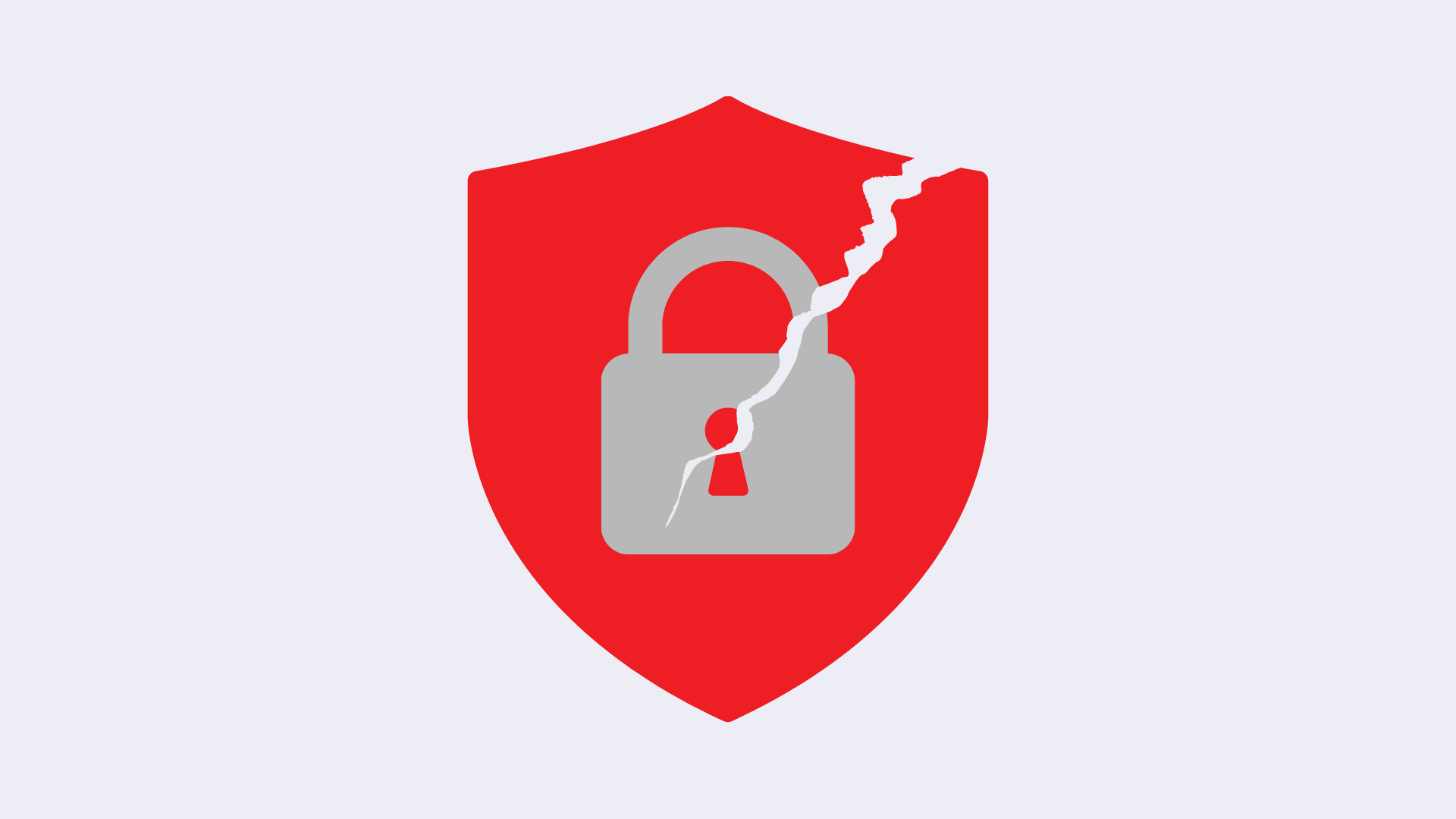Signalgate 2.0 proves it - there’s no such thing as a “Backdoor for the Good Guys Only”
Sensitives data fell into the hands of criminals because US officials were using a non-encryption version of the popular chat app Signal.
To meet record-keeping requirements for official government communication, TeleMessage created a system that allowed messages sent via Signal and other encrypted apps to be archived centrally. In doing so, this unofficial fork of Signal broke the core security promise of Signal’s end-to-end encryption: that only the sender and recipient can read a message. This compromise opened the door to attack - and attackers walked right in.
This central archiving feature undermined the very security feature the standard Signal app is famous for: end-to-end encryption. Thus, making Signalgate 2.0 possible.
Due to a severe implementation mistake in the code – hard-coded credentials – and a poorly secured cloud storage where the chats were archived, malicious attackers got access. As a consequence, TeleMessage was shut down. This hack must be seen as a chilling warning. One that security experts like myself have warned about again and again.
For years, law enforcement agencies and intelligence officials around the world have called for so-called “lawful access” to encrypted communications. The argument goes like this: If encryption could be broken just for trusted government actors - if we could build a “backdoor for the good guys only” - we’d be safer from terrorists, child predators, and other threats.
Dangerous narrative
But as Signalgate 2.0 shows, this fantasy is a dangerous narrative.
Politicians wanting to undermine encryption must understand that by doing so, they will weaken encryption for everyone. There is no way to build a “secure backdoor.” If a vulnerability exists, the question is not whether you can secure it against malicious attackers well enough. The question is not whether it can be hacked or not. If a vulnerability exists, the question is when it will be found. If a master key is created, the question is when it will be stolen.
What makes Signalgate 2.0 the perfect wake-up call is that the affected app – TeleMessage - wasn’t used by ordinary citizens, but by high-ranking officials in sensitive government positions: the U.S. Customs and Border Protection, the U.S. Department of Homeland Security, the U.S. Department of the Treasury, and a presidential adviser. If the providers of this supposedly secure app were not able to lock down the app contents and metadata for these high-ranking customers, isn’t this enough proof that the requirement – developing a securely encrypted communication tool with backdoor access for the good guys only – is simply an impossible task to achieve?
As Press officer of Tuta Mail, a provider of quantum-safe, end-to-end encrypted email, I know firsthand how difficult it is to balance usability and robust cryptographic security. But I also know that undermining encryption is never the answer. Once a door is created, it cannot be closed to just the “bad guys.” The tools and apps that are used by journalists, dissidents, whistleblowers, businesses, and everyday people to protect their private communications will become targets of criminals and secret services of hostile foreign powers the moment they are weakened.
No to backdoors


Instead of demanding backdoors to encryption, governments should focus on targeted tools that do not open the door for illegal mass surveillance of all citizens and invest in law enforcement agencies so that they actually have the manpower and know-how to prosecute cyber criminals, online predators and terrorists. It’s a myth that we need backdoor access to encryption to achieve more security.
We must learn from Signalgate 2.0 and not repeat its mistakes on a larger scale.
”Signalgate 2.0 should be the final nail in the coffin of the “backdoor for the good guys only” demand. When we undermine encryption, we make the world less safe for everyone.”


